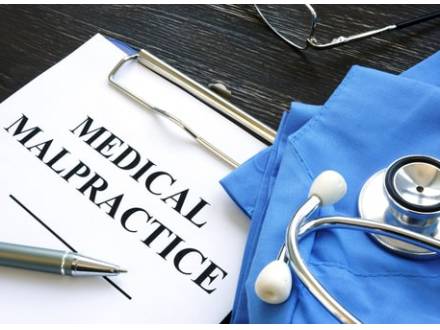121 S. Wilke Road, Suite 301, Arlington Heights, IL 60005
Home and Hospital Visits for Your Convenience
Serving Clients Across 7 Illinois Locations
When Are Sepsis Complications Medical Malpractice?
 Anyone can get infections. The human body can attempt to fight those infections, with antibiotics and other medications often assisting in that fight. When an infection is not stopped, a chain reaction can be triggered. Sepsis is the body’s life-threatening extreme response to infections. Untreated sepsis can cause serious conditions and death.
Anyone can get infections. The human body can attempt to fight those infections, with antibiotics and other medications often assisting in that fight. When an infection is not stopped, a chain reaction can be triggered. Sepsis is the body’s life-threatening extreme response to infections. Untreated sepsis can cause serious conditions and death.
Sepsis is very common in the U.S., and healthcare providers should recognize the symptoms and provide the correct treatment immediately. Developing sepsis may not necessarily give you grounds for a medical malpractice claim. However, some forms of medical negligence associated with sepsis can. Our dedicated Arlington Heights, IL medical malpractice attorneys can fight to help you collect maximum compensation.
How Common Is Sepsis in the U.S.?
At least 1.7 million cases of adult sepsis are reported in the U.S. annually. Most patients develop sepsis before being hospitalized for their condition. Sadly, 25-33 percent of people with sepsis visited a healthcare provider in the week before being hospitalized.
Sepsis progresses very quickly. Death is possible in only 12 hours in extremely severe cases. That means timely diagnosis and treatment are incredibly important. For every hour treatment is delayed, the risk of death increases by 8 percent.
Although almost every infection can lead to sepsis, certain types are more likely to do so. Urinary tract and lung infections, infected cuts, and cellulitis are among those with the highest risks.
What Are Common Symptoms, Treatments, and Consequences of Sepsis?
Early intervention with sepsis is critical. Common symptoms include shortness of breath, fever or extremely low temperature, extreme discomfort or pain, high heart rate, sweaty or clammy skin, and disorientation or confusion.
Treatment options for sepsis include administering intravenous fluids and antibiotics, supplemental oxygen, medications to maintain blood pressure, and surgery. The best treatment option depends on several factors, such as the nature of the primary infection, the patient’s overall health condition, and the severity of the sepsis.
When the appropriate treatment is not administered, the patient can suffer various consequences. Organ and tissue damage, amputations, and post-sepsis syndrome are possible. Over 350,000 hospitalized sepsis patients die or are discharged to hospice every year in the U.S.
When Can a Case of Sepsis Give Grounds for a Medical Malpractice Claim?
Medical negligence related to sepsis can take several forms, including:
- Failing to diagnose and treat the initial infection correctly
- Failing to monitor the patient
- Failing to order the correct diagnostic tests
- Failing to diagnose sepsis
- Delaying the treatment of sepsis
- Choosing the wrong treatment for sepsis
When these and similar types of medical negligence directly harm a patient, a medical malpractice or wrongful death claim may be possible. Your compensation could include various expenses related to the sepsis, such as lost wages and medical bills, as well as the many ways the sepsis may have diminished your quality of life.
Medical malpractice claims are more complicated than many other kinds of cases. Our attorneys have many decades of experience, so we know how to handle your claim effectively.
Speak to Our Skilled Rolling Meadows, IL Medical Malpractice Lawyers
When medical negligence causes or complicates a case of sepsis, the healthcare provider needs to be held accountable. Contact Newland & Newland, LLP online or at 847-797-8000 now to discuss your case with our knowledgeable Palatine, IL personal injury attorneys. Your initial consultation is free of charge.

 Spanish
Spanish Cantonese
Cantonese



















